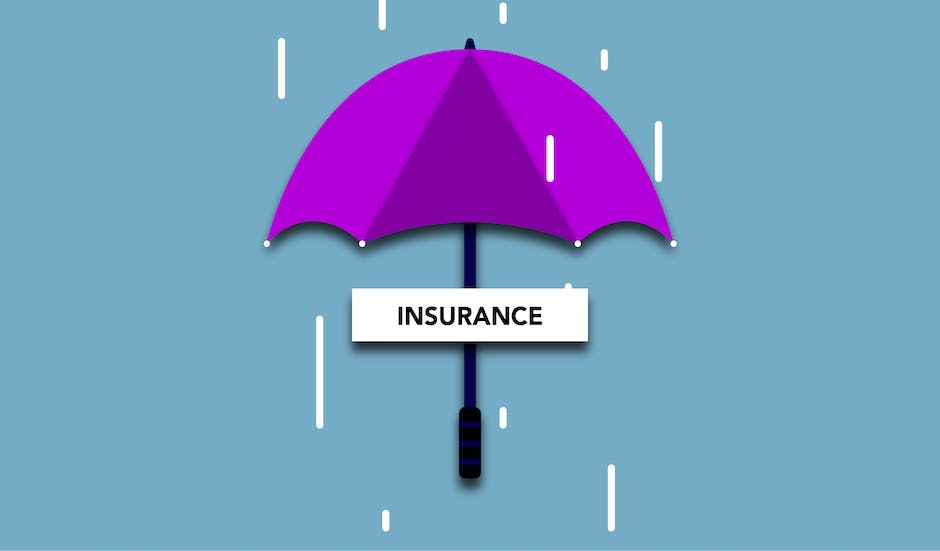When diving into the world of property rental, both landlords and tenants must be well-informed about the nuances of renters insurance. This widely misunderstood policy type goes beyond protecting personal belongings from damage or theft; it serves as a safety net against potential liabilities and brings peace of mind to both parties involved in a rental agreement. In this exploration, we dissect renters insurance – from understanding its basics such as coverages and importance, down to the nitty-gritty details of liability and how it serves to protect not only renters, but landlords as well. We also delve into the legal perspectives around renters insurance from the viewpoint of landlords and finally, share essential tips on how landlords can ensure their tenants carry this vital coverage.
Understanding Renters Insurance
Understanding Renters Insurance
Renters Insurance, also known as Tenants Insurance, is a policy designed to benefit individuals who rent properties. Unlike Homeowner’s Insurance which covers the physical structure, Renters Insurance is specifically created to protect the renter’s personal belongings within the rental unit. This policy also provides a layer of financial protection against certain liabilities such as property damage or bodily injury that could be caused by the policyholder.
Components of Renters Insurance
There are key features to consider in regard to Renters Insurance: personal property coverage, liability coverage, and additional living expenses coverage. Personal Property coverage comes into play when personal possessions are stolen, damaged, or destroyed by perils such as burglary, fire, or severe weather. It includes possessions like furniture, electronics, clothes, and even some higher-value items like jewelry if specifically listed in the policy.
Liability Coverage provides protection if someone gets injured in your rental unit and decides to sue, or if you unintentionally inflict damage to someone else’s property. This kind of coverage can cover legal fees and the costs associated with ensuing litigation, protecting you from significant financial strain.
Additional Living Expenses (ALE) coverage is another essential component that comes into play if the rental unit becomes uninhabitable due to certain damages covered in the policy. This coverage can help offset costs for alternative housing arrangements or incur additional costs such as meals and laundry.
Importance of Renters Insurance
Renters Insurance can be of great importance to both renters and landlords. For renters, it provides a substantial level of security and peace of mind, knowing that they have financial protection in case of losses or damages. Contrarily, for landlords, it lessens their potential liability and ensures they will not have to bear most of the financial burden arising from such incidents.
Enhancing Landlord Protection
It is a common misunderstanding among landlords that their home insurance policy provides them with ample protection against liabilities incurred from their rental properties. Nevertheless, these insurance policies could fail to cover the renter’s personal belongings, injuries to visitors, or additional living costs. Thus, it’s advantageous for landlords to encourage their tenants to secure Renters Insurance—this can indirectly shield landlords from liability claims as such a policy could account for those expenses.
Consider a scenario where a tenant unintentionally starts a fire, causing damage to several apartments. While the landlord’s insurance might bear the cost of repairing the building, it wouldn’t typically compensate for the loss of the other tenants’ personal effects. In this type of situation, Renters Insurance proves vital, stepping in to cover these personal property losses, helping to steer the landlord away from potential litigation.
Therefore, Renters Insurance serves as a cornerstone for financial protection for both landlords and tenants, alleviating stress and expertly mitigating future disputes. It effectively fills the coverage void left by homeowner’s insurance, delivering essential protection to all parties involved in rental agreements.

Liability Coverage in Renters Insurance
Demystifying Liability Coverage in Renters’ Insurance
Liability insurance stands as one of the fundamental aspects of renters insurance. Put simply, liability insurance defends policyholders if found legally responsible for an accident causing harm to another individual or their property. It’s crucial to understand that such coverage doesn’t just compensate for the financial losses; it additionally covers legal expenses in the off-chance a lawsuit ensues.
The Necessity of Liability Coverage
The liability portion of renters insurance is essential because it offers coverage in diverse scenarios. For instance, if a guest slips and falls inside your rental property and decides to sue you for their medical expenses, your liability insurance would cover the legal costs and any resulting judgments against you, up to your policy limits. Another example would be if your child accidentally breaks a neighbor’s expensive item, the liability protection can cover the compensation costs.
Typical Coverage Limits
The coverage limits for the liability portion of renters insurance typically range from $100,000 to $500,000. However, these limits can be adjusted based on the renter’s personal needs and the perceived level of risk. While choosing a limit, it is important to consider factors such as the location of the property and the extent to which you generally interact with others in that space.
The Relation to Landlords
For landlords, a tenant having renters insurance with liability coverage can serve as an additional layer of protection. While a landlord’s insurance will have liability protection, this typically covers only incidents directly related to the building or the landlord’s negligence. If a tenant or their guest suffers an injury within the rented premises due to the tenant’s negligence, the landlord’s insurance usually won’t cover it. However, if the tenant has liability coverage, it could potentially protect the landlord from incurring out-of-pocket costs or being drawn into a lawsuit related to the incident.
Real-World Scenarios
To better understand the role of liability insurance in real-world scenarios, consider the following examples. First, let’s assume your bathtub overflows, causing water damage to your neighbor’s property below. Your liability insurance would cover the damage costs.
In another situation, imagine you accidentally start a fire in your apartment that spreads to other units. Your liability insurance would cover the repair costs for the damages to the other apartments, up to your policy’s limit.
Lastly, suppose you own a dog, and it bites someone inside your rental property. Your liability insurance would cover the medical expenses and any legal costs if the injured party decides to sue, again subject to your policy’s limits.
Liability coverage contained within renters insurance plays a vital role in shielding you from potentially massive financial losses. This protection becomes particularly significant when accidental property damages occur.

How Renters Insurance Protects Landlords
The Advantage Renters’ Insurance Provides to Landlords
Landlords enjoy several notable advantages when their tenants hold renters insurance. Primarily, it acts as a protective shield for their investments. Renters insurance covers the expenses for accidental damages to the rental property. This implies that in unfortunate incidents like a fire outbreak, water damage or theft, landlords aren’t burdened with the cost of repair or replacement. The tenant’s insurance policy intervenes, reimbursing the damage costs subject to the policy’s terms and conditions.
Reduced Liability for Landlords
Renters’ insurance policies typically contain liability coverage. This helps landlords by shielding them from potential legal and medical costs. For instance, if a guest at the property gets injured and decides to sue, the tenant’s liability insurance will cover the legal expenses and medical bills upto the policy’s limit. Without this coverage, landlords might find themselves involved in lawsuits, facing financial and reputation damages.
Safer Rental Property Environment
Having insured renters can lead to a safer rental property environment. If a tenant’s personal property is damaged or stolen, the policy will provide coverage, contributing to a sense of security and well-being among residents. This deters property crimes and ensures a peaceful cohabitation for all tenants.
Risk Mitigation Strategy for Landlords
Encouraging or requiring renters to have insurance can serve as an effective risk mitigation strategy for landlords. It not only provides financial protection but also strengthens the relationship between the landlord and tenant. If a tenant accidentally causes property damage or if a guest sues the tenant for some reason, the renter’s insurance will absorb these costs. This helps to avoid any discontent or potential legal dispute between the landlord and tenant.
The Indirect Financial Impact on Landlords
Financial burden placed on tenants without renters’ insurance can indirectly impact landlords as well. If a tenant experiences a significant loss and have to strain their finances to recover, they might not be able to make their rent payment. This scenario leaves landlords to handle the loss of rent or the arduous and costly process of eviction. With renters’ insurance, tenants will be able to replace their lost belongings and maintain their ability to pay rent as agreed.
Conclusively, the importance of a dependable renters insurance policy is undeniable when evaluating the diverse benefits it offers to landlords. This insurance underlines the safety and protection of the property and reduces potential liabilities. Moreover, it aids in maintaining harmony among tenants and further helps in risk management. Indeed, renters insurance serves as a safety net for both landlords and tenants.

Landlords’ Legal Perspectives on Renters Insurance
Delving into the Importance of Renters Insurance for Landlords
Renters insurance, more commonly known as tenants’ insurance, is a policy designed to provide protection to the tenants from unforeseen incidents such as theft, fire or personal liability. As a landlord, it becomes essential to comprehend the precise function of renters insurance and its implications on your role.
Mostly, renters insurance is utilized to safeguard the personal belongings of the tenant. However, it also indirectly acts as a safeguard for the landlord against certain liabilities. Among the several benefits for landlords, liability coverage stands to be the most significant feature of renters insurance. This kind of insurance acts as a protective shield for landlords in cases where a tenant or a visitor gets injured on the rental property due to a risk that is covered under the insurance policy. To illustrate, if a tenant or their guest is injured owing to a fire or due to tripping on a broken step within the property, the financial responsibility might not fall on the landlord. Instead, the tenant’s renters insurance is most likely to take care of the incurred medical expenses.
Lease Terms and Renters Insurance
Often, a lease agreement will contain a clause stating that the tenant must obtain renters insurance. This type of clause is legally enforceable in most states. A renters insurance clause in the lease agreement proactively protects both landlord and tenant. For the landlord, it reduces the possibility of litigation if a tenant’s possessions are damaged or if a guest is injured on the property. For the tenant, it ensures that their possessions are covered in case of loss or damage, and that they have liability insurance in case they unintentionally cause damage to the property.
The Landlord-Tenant Responsibility Paradigm
Understanding who is responsible for what is integral when dealing with renters insurance. Typically, the tenant’s renters insurance only covers their personal property and provides liability coverage for incidents within the rental unit. The landlord, on the other hand, typically has a different kind of insurance, known as a landlord insurance policy. This covers the physical property including the structure itself and any appliances or furnishings provided by the landlord. This does not however cover the tenants’ personal belongings.
A landlord’s insurance policy also usually includes liability coverage for accidents that happen on the property that are due to the landlord’s negligence. However, it won’t cover liabilities resulting from accidents within the tenant’s own rental unit for which the tenant is responsible.
Significance of Legal Precedents Involving Renters Insurance
Legal precedents involving renters insurance play a critical role in shaping how these policies are enacted and enforced. They help landlords and tenants understand the rights and responsibilities that come with leasing a property. For instance, some legal cases have established that landlords can require tenants to hold renters insurance as a term of their lease. Other legal cases have clarified landlord responsibilities when a tenant’s property is damaged or stolen.
Final Thoughts
While no rule mandates renters insurance, its existence greatly benefits both landlords and tenants. The insurance doesn’t just safeguard a tenant’s personal possessions or cover potential liabilities, but it also provides some degree of security for landlords. Grasping these legal subtleties concerning renters insurance can aid landlords in navigating this complex field seamlessly.

Tips for Landlords: Ensuring Your Tenants Have Renters Insurance
Why Landlords Should Advocate for Renters Insurance
As a property owner, it’s in your best interest to advocate for your tenants to invest in renters insurance. Why? Because this type of insurance can safeguard you from potential financial harm if a tenant’s carelessness results in either damage to your property or injury to another tenant or visitor.
Legal Aspects of Renters Insurance for Landlords
As a landlord, you have the legal right to require your tenants to carry renters insurance as a condition of their lease. However, it’s essential to include this requirement explicitly in the lease agreement. Also, you need to ensure the lease provision is enforceable under your local and state laws. Consult with a real estate or rental law attorney to confirm.
Communication Tips for Landlords
Informing potential tenants about the requirement for renters insurance during the application process can save a lot of hassle later on. Include the requirement in your rental listing and application materials, and discuss it during viewings. Explain the benefits of renters insurance, such as protection from personal property damage, liability, and additional living expenses if a covered loss makes your rental unit uninhabitable.
How to Check for Compliance
As a landlord, it’s crucial to ensure that your tenants have maintained their renters insurance. One effective way to do this is by requiring all tenants to provide proof of insurance at lease signing and upon each renewal period. This can either be a copy of the insurance policy or a certificate of insurance from their insurance provider, showing that the policy is active and set to renew.
Landlords’ Indirect Benefit from Renters Insurance
Even though the landlord is not directly covered by the renter’s insurance, they can still benefit. If a tenant’s negligence causes a fire or water damage, the tenant’s liability coverage can help pay for the repairs, potentially sparing the landlord from having to file a claim on their property insurance. In cases of injury occurring in the rental unit due to the tenant’s negligence, the tenant’s policy could cover the resulting medical or legal costs, again protecting the landlord from potential financial impact.
Increasing Tenant Compliance
To increase compliance with your renters insurance policy requirement, consider partnering with an insurance agency that specializes in renters policies. Some insurance providers can set up programs for landlords, making it easy for tenants to obtain coverage. Providing tenants with informational materials, resources, or recommendations can also facilitate compliance.
Remember, while you can require renters insurance, it’s also essential to acknowledge that each tenant’s needs are different, and they should seek advice from an insurance professional to ensure they have the right coverage for their situation.

Recognizing the importance and benefits of renters insurance can significantly transform the culture of leasing for both landlords and renters. For landlords, it provides an additional line of defense against financial pitfalls and potential liabilities. By understanding what renters insurance entails and the extent of protection it provides, both parties can foster a safer, smoother, and more sustainable rental property environment. Knowledge about the legal aspects of renters insurance gives landlords the upper hand in securing their properties. Furthermore, adopting strategies on encouraging tenants to have renters insurance will not only protect landlords’ interests but also ensure tenants understand their part in the collaborative effort of preserving and protecting the property they call home.
